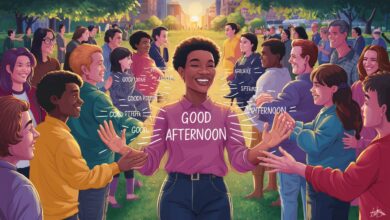Roasts That Hurt: When Wit Cuts Deep and Leaves a Scar

Introduction: The Lingering Sting of a Verbal Blade
We’ve all witnessed it—the moment a perfectly aimed insult lands with brutal precision, silencing a room or reducing its target to a forced smile that doesn’t reach their eyes. Roasts That Hurt, by design, walk a razor’s edge between humor and hostility. Yet when crafted to truly hurt, they transcend playful banter and embed themselves like shrapnel in the psyche. These verbal grenades often weaponize insecurities, relationships, or past traumas under the guise of comedy, leaving wounds that fester long after the laughter fades. This article dissects the anatomy of devastating roasts, explores why certain barbs penetrate so deeply, and confronts the ethical tightrope between sharp wit and emotional cruelty. In a culture obsessed with clapbacks and “savage” takedowns, understanding the line between entertainment and harm is not just insightful—it’s essential for preserving human dignity in our interactions.
The Anatomy of a Hurtful Roast
A roast that leaves a lasting scar isn’t merely clever—it’s surgically precise. It identifies a target’s most vulnerable insecurities (physical appearance, failures, or deeply personal struggles) and amplifies them with ruthless clarity. Unlike lighthearted teasing, which might poke at surface-level quirks, hurtful roasts weaponize truth. For example, mocking someone’s receding hairline is shallow; linking it to their fear of aging or professional irrelevance twists the knife. Timing and delivery magnify the damage: a deadpan tone or public setting strips the target of defenses, transforming humiliation into spectacle. The most brutal roasts often exploit unspoken truths—the kind everyone notices but never voices—making evasion impossible and the emotional bleed-out slow and inescapable.
Why Do Some Roasts Cut Deeper?
The pain of a roast hinges on three psychological pillars: relatability, shame, and betrayal. When an insult articulates a fear the target already harbors (e.g., “No wonder your ex left you—you’re emotionally bankrupt”), it resonates with terrifying validation. Shame ignites when private flaws are dragged into public view, triggering a primal fear of social rejection. Worst of all is betrayal—roasts from friends, partners, or mentors weaponize intimacy. A colleague joking about your anxiety disorder cuts deeper than a stranger’s jab because it exploits trust. Neurologically, such insults activate the brain’s pain centers like physical threats. The wound isn’t just “in your head”; it’s a visceral injury dressed as comedy.
The Psychology Behind the Pain
Hurtful roasts thrive on cognitive dissonance. Targets grapple with conflicting realities: Was this joke or judgment? This ambiguity traps them in mental loops, dissecting the insult for hidden contempt. Psychologists note that victims often internalize these barbs, especially when delivered by authority figures or peers. A parent “joking” about a child’s weight can seed lifelong body image issues, while a partner’s “playful” dig about intelligence erodes self-worth. The brain’s negativity bias ensures cruel words outweigh 10 compliments, embedding themselves in memory. This isn’t sensitivity—it’s evolutionary wiring. Humans are social creatures; verbal attacks threaten belonging, activating the same survival instincts as ancestral exile.
Famous Roasts in History and Pop Culture
History’s most cutting roasts reveal how words can outlive their speakers. Oscar Wilde’s quip, “Some cause happiness wherever they go; others, whenever they go,” blends elegance with annihilation. Dorothy Parker’s dagger—”You can lead a horticulture, but you can’t make her think”—exemplifies wit sharpened to draw blood. Modern media glorifies such takedowns: reality TV villains, celebrity feuds, and viral “clapback culture” reward brutality. Yet behind the applause lies collateral damage. Comedian Don Rickles built a career on insults, but targets like Frank Sinatra laughed because their status was unshakable. When roasts target the less powerful—think schoolyard bullying or online harassment—the dynamic isn’t comedy; it’s predation masquerading as entertainment.
The Line Between Funny and Hurtful
Distinguishing a funny roast from a hurtful one hinges on intent, consent, and power dynamics. In comedy clubs or roast battles, participants sign up for mutual skewering—a consensual arena with implied rules. The humor derives from absurdity, not cruelty. Conversely, roasts that hurt often ambush the unprepared, exploit imbalances (e.g., boss vs. intern), or punch down at marginalized traits. Context is key: teasing a friend about their terrible dancing is harmless if they laugh with you; linking it to their deceased parent’s ridicule is psychological warfare. True wit elevates; cruelty demeans. The difference lies in whether the laughter unites or isolates.
How to Handle Being Roasted
Surviving a brutal roast requires emotional armor and tactical clarity. First, pause before reacting. Defensiveness often fuels the aggressor. A neutral response (“Interesting take”) deprives them of satisfaction. Second, assess intent. Was this malice or misjudged humor? If the former, limit engagement; if the latter, a private conversation may resolve it. Third, contextualize the insult. Ask: “Does this reflect my truth or their toxicity?” Finally, reclaim power. Respond with icy indifference (“I’d agree with you, but then we’d both be wrong”) or dignified silence. Seeking support from trusted allies also diffuses isolation. Remember: their words define them, not you.
The Art of Roasting Without Cruelty
Mastering the ethical roast demands empathy and discipline. Rule 1: Punch up, not down. Satirize oppressive systems or arrogant authorities—not personal struggles. Rule 2: Avoid irreversible traits. Mock choices (hairstyles, fashion) not identities (race, disability). Rule 3: Ensure reciprocity. Roasts thrive in equal relationships where all parties consent to the game. Rule 4: Know your audience. A comment amusing among friends may devastate a stranger. Comedians like Hasan Minhaj exemplify this—his roasts of politicians highlight hypocrisy without attacking inherent worth. The goal isn’t to obliterate but to critique, connect, and ultimately, leave the target’s humanity intact.
Conclusion: The Double-Edged Sword of Roasts
Roasts that hurt linger because they reveal uncomfortable truths about human interaction: our words can be weapons, and laughter can be laced with venom. While sharp wit holds a mirror to absurdity and pretense, its darker incarnation—rooted in humiliation—erodes trust and inflicts trauma that outlasts the moment. In embracing verbal sparring, we must ask not just “Is this clever?” but “Is this kind?” and “Who pays the price for my applause?” The greatest roasters understand that true brilliance lies in leaving the target standing—wiser, perhaps even amused—not shattered. Because in the end, the line between comedian and bully isn’t talent; it’s empathy.
Frequently Asked Questions (FAQs)
Q: Aren’t hurtful roasts just harmless fun if the target is “too sensitive”?
A: Dismissing pain as “oversensitivity” ignores psychology. Research confirms verbal wounds activate brain regions linked to physical pain. Context matters: a consensual roast among equals differs from ambushing someone with their trauma. If an insult relies on shame, it’s not humor—it’s aggression.
Q: Can a roast be funny and hurtful?
A: Absolutely. Humor is subjective, and intent doesn’t negate impact. A joke may kill in a comedy club but devastate its subject. The test is whether the laughter comes with the target (shared humanity) or at them (dehumanization).
Q: How do I apologize if my roast went too far?
A: Take full ownership: “I realize what I said about your divorce was cruel, not funny. I violated your trust, and I’m deeply sorry.” Avoid excuses (“You know I joke!”). Offer space for their response without demanding forgiveness.
Q: Are roasts culturally acceptable everywhere?
A: No. Cultural norms vary widely. In some communities, sharp banter signifies closeness; in others, it’s profoundly disrespectful. Always prioritize respect over imitation—know your audience beyond stereotypes.
Q: Can hurtful roasts ever be justified?
A: Rarely. Exceptions might include calling out bigotry or abuse (e.g., a blistering takedown of a corrupt public figure). But even then, attacking actions versus inherent worth prevents collateral damage to dignity.



